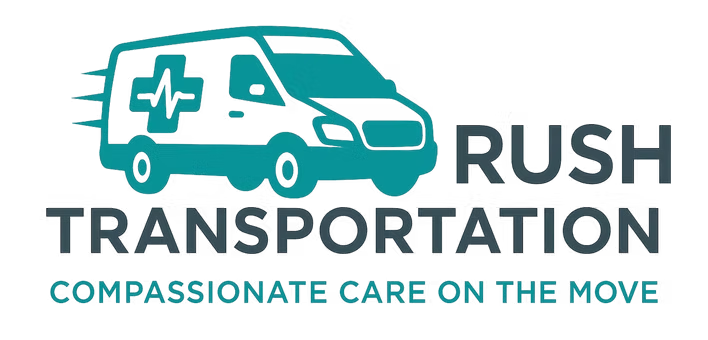Medical travel involves more than just transportation. It is about being able to walk with dignity, safety, and comfort when one’s health is at risk. Many families beginning on medical journeys feel a range of emotions, including hope, worry, and a sense of duty. This may make each mile less upsetting and more doable by providing a clear picture of what to expect.
The Heart of Medical Transportation
Medical transportation is distinct from a typical journey. It integrates dependable travel arrangements with expert assistance. This service is primarily focused on ensuring that loved ones get medically acceptable care in hospitals, clinics, and treatment facilities. Each journey is designed to reduce dangers, lessen anxiety, and provide families with steadfast support.
Safety First, Always
Every medical journey begins with safety. Medical transportation vehicles are designed to provide functions that go beyond traditional transportation. They have equipment that can support a range of health issues, such as oxygen supply, stretchers, and adjustable chairs to promote comfort. More importantly, qualified professionals accompany patients to ensure that they react calmly and quickly if their situation changes throughout the voyage.
Families can expect:
- Vehicles are cleaned and checked before each trip.
- Safety equipment is available and ready for use.
- Drivers and attendants are trained to handle medical needs.
- Smooth communication about travel details and timing.
These measures ensure that the journey is steady and secure from the beginning to the end.
Comfort That Eases the Road
Medical travel can be long, and comfort makes a difference. Patients may already feel weak or uneasy, so the travel environment needs to be gentle. Families should expect soft seating, temperature control, and a calm atmosphere during the ride. Even small touches, like steady driving and respectful handling of medical equipment, go a long way in easing the experience.
Comfort during medical transportation is not a luxury; it’s a way to reduce stress, prevent fatigue, and help patients arrive ready for care.
The Role of Compassionate Caregivers
Behind every medical trip are caregivers who bring skill and compassion together. They understand that every patient has unique needs. Some may need close monitoring, while others require assistance moving in and out of the vehicle.
Caregivers during medical transportation offer:
- Gentle communication to ease anxiety.
- Support when lifting or positioning patients.
- Attention to medical requirements along the way.
- Respect for privacy and dignity at all times.
This presence reassures families that their loved one is never alone on the road.
Clear Communication Matters
Families need to know what’s happening during every stage of medical travel. Clear communication builds trust and reduces uncertainty. From the moment the trip is scheduled until arrival, families should expect updates and explanations in simple terms.
Good communication ensures:
- Families know when the vehicle will arrive.
- Any special requests are acknowledged.
- Arrival times at hospitals or clinics are clear.
- Questions are addressed with patience and honesty.
This openness helps everyone feel more confident about the journey.
Respecting Family Involvement
Medical travel isn’t only for the sick; it’s for the whole family. Families typically want to be active, and medical transportation makes it possible. Family members may be allowed to go with the patient, ride along, or remain in touch via updates. This engagement makes both the sufferer and their caretakers feel better.
Respect for family involvement can be seen in:
- Welcoming a family member to ride with the patient when possible.
- Allowing families to help with familiar routines.
- Giving updates during long trips.
- Creating space for family support without interruption.
When families feel included, the journey feels lighter and more meaningful.
What Families Gain from Medical Transportation
Medical travel offers more than just mobility. It brings relief, structure, and reassurance. Families can expect:
- Safety: Every detail is designed to reduce risks.
- Comfort: Travel that eases rather than adds to discomfort.
- Support: Caregivers who stay attentive throughout the journey.
- Clarity: Open communication that keeps families informed.
- Respect: A focus on dignity and inclusion for patients and loved ones.
These benefits remind families that medical transportation is about care, not just logistics.
Beyond the Journey
Arriving at a hospital or clinic is only one part of medical travel. The way families feel during the journey shapes how they face treatment and recovery. When the trip is smooth, calm, and supportive, patients step into their appointments feeling steadier. Families carry less worry, and the focus can remain on healing.
Every mile covered with care lays the foundation for better health outcomes and stronger family confidence.
Final Verdict
Medical travel is more than simply getting to a place; it also includes arriving with dignity, help, and safety. Families should demand care that meets both their loved ones’ physical and emotional needs. Medical transportation makes the travel seem less stressful and safer by using dependable cars, caring employees, and open communication.
Companies like Rush Transportation Services LLC stand as trusted partners in this process, ensuring that every medical trip supports both health and comfort. Families choosing such services gain more than a ride—they gain care on the move.


